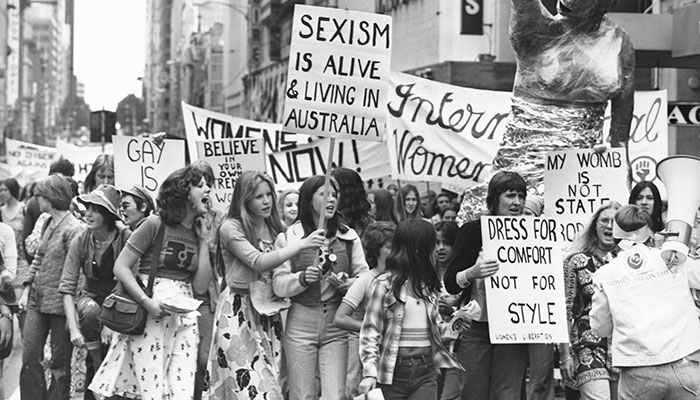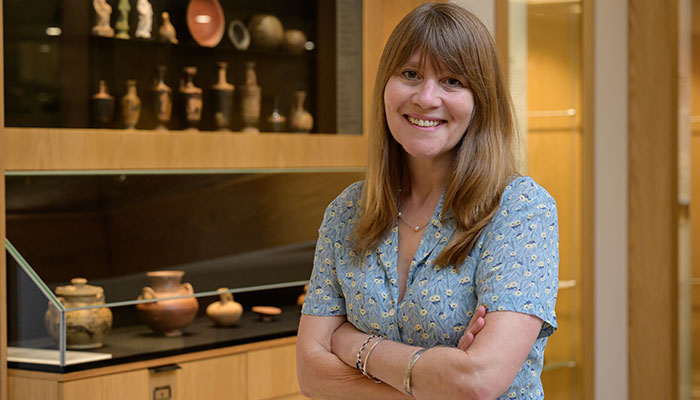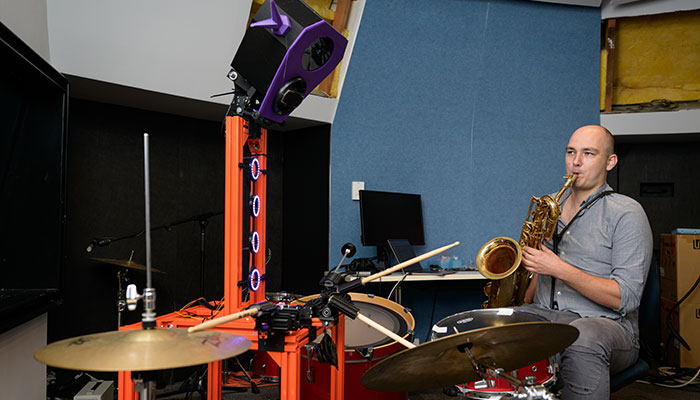When he first became Prime Minister in October 1941, John Curtin informed the press that he held to a Sunday night poetry reading ritual and he declared that "every man should read poetry for the good of his soul".
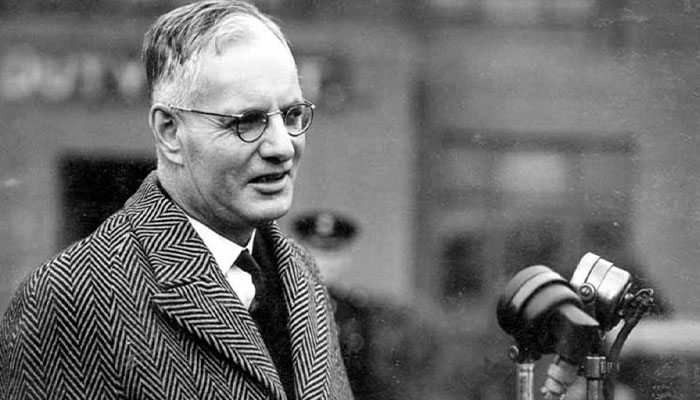
Well versed: As Prime Minister, John Curtin's wartime speeches quoted Shakespeare, William Wordsworth, Lord Byron and others.
As the war deepened, he only became more of a passionate advocate for Australian literary and artistic advancement because, as he told a crowd assembled for the poet Dame Mary Gilmore’s 77th birthday in Sydney in 1942, "Australia does not consist of the buildings around us" and without "poets, thinkers, dreamers, artists, sculptors and musicians … this country would be but a material place, well fed, perhaps, but not happy or enduring."
As recounted in my new book, Good for the Soul: John Curtin’s Life with Poetry (University of Western Australia Publishing), Curtin himself had highly developed literary tastes, with a particular fondness for Australian, British, American and European poets.
Curtin valued poetry for its inspiration, but also for the ‘mental relief’ it gave him during times of great stress.
His wartime speeches in parliament, public and on radio quoted Shakespeare, William Wordsworth, Algernon Swinburne, Lord Byron and Bernard O’Dowd alongside verses from active servicemen and Australians on the home front.
He valued poetry for its inspiration, but also for the ‘mental relief’ it gave him during times of great stress. He was a steadfast advocate for universities, the arts and the financial support of writers.
Intriguing results when politics and poetry collide
US Youth Poet Laureate Amanda Gorman’s performance of her poem The Hill We Climb at the US Presidential Inauguration was rapturously received around the world. President Biden himself, leaving his Delaware headquarters the day before, made an emotional speech in which he referenced his own penchant for quoting Irish poets, "not because I’m Irish, but because they’re the best poets".
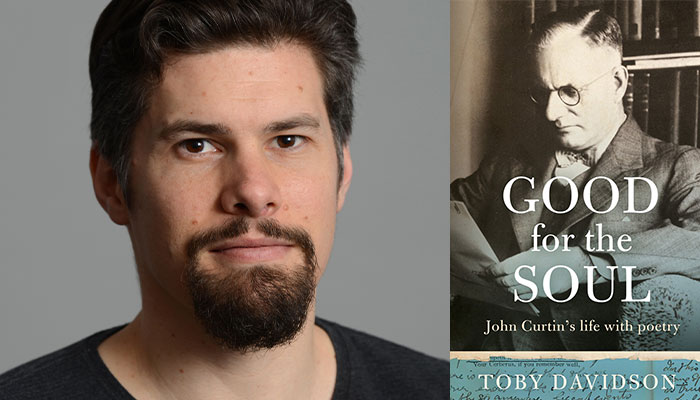
Inspiration: Dr Toby Davidson (pictured) describes in his new book how poetry gave Curtin 'mental relief' during times of great stress.
In Australia things are less presidential, of course. New governments are sworn in at the Governor-General’s residence at Yarralumla in a fairly spartan manner compared to American pomp and largesse.
We also do not have any official poet laureate, much less a youth one. Despite the example of Curtin, poetry in Australia is a much more secretive business than in most other countries.
- Please explain: Why does the world need poetry?
- Revealed: the best trees for shading hot Sydney school yards
Most publishers and budgets are small, most profiles and reviews limited (even despite social media). Population matters just as much as popularity in terms of the raw market for poetry – the US population stands at 332 million, more than 12 times that of Australia.
Even though there is no Australian poet laureate, Australian politicians still do occasionally acknowledge that poetry has and is being written in this nation. The annual Prime Minister's Awards for Literature and the various Premier's Prizes are very public examples of this.
But some go further, often leading to strange and intriguing results.
Dame Mary, friend and family to PMs
Prime Minister Scott Morrison has been known to recite Edmondson V.C. by his great-aunt Dame Mary Gilmore at Anzac Day services and has lauded her pioneering journalistic career, even though she was also an ardent communist, a fact that might have escaped President Donald Trump when Trump recited some of Gilmore’s No Foe Shall Gather our Harvest at a 2019 White House Rose Garden ceremony to greet the Australian Prime Minister (viewable on Youtube).
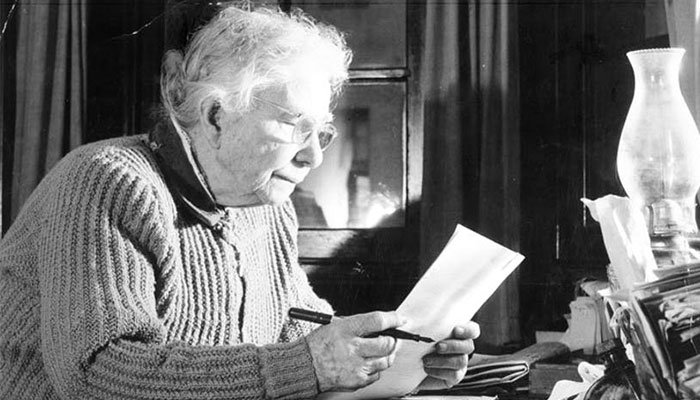
Wartime laureate: Dame Mary Gilmore in the early 1950s ... current PM Scott Morrison's great-aunt, she was also John Curtin's firm friend. Photo credit: State Library of Victoria
Trump’s Rose Garden reading is recounted in the final chapter of Good for the Soul. Curtin actually knew Dame Mary and counted her a firm friend.
During the darkest days of World War II, she lionised Prime Minister Curtin in verse and wrote letters to him regularly. Dame Mary became something of a wartime Australian poet laureate, writing defiant poems such as The Battle-Cry, Singapore and No Foe Shall Gather our Harvest which appeared in the national papers.
Curtin’s message of the crucial place in Australia of poets, thinkers, dreamers et al, rings true today, especially so in light of ongoing debates about federal support for universities and the arts.
- Why do mozzies bite some people and not others?
- Did frozen mud balls in space make life on Earth possible
Despite the chaos of the present, one thing is certain – there are far more politically minded Australian poets than ever before.
My recently published collection Four Oceans (Puncher and Wattmann) seeks to play an unofficial poet laureate role in the no-nonsense manner of Dame Mary by tackling issues such as human rights, climate change, neocolonialism and the social and mental impacts of the digital age.
As Curtin knew, poetry gets to the core of the matter like no other literary form and is thus uniquely placed to engage, inspire and heal our minds as well as the national consciousness.
Dr Toby Davidson is an Australian poetry scholar, creator, facilitator and editor, and a Senior Lecturer in the Department of Media, Communications, Creative Arts, Language and Literature. Good for the Soul: John Curtin’s Life with Poetry is published in February.

